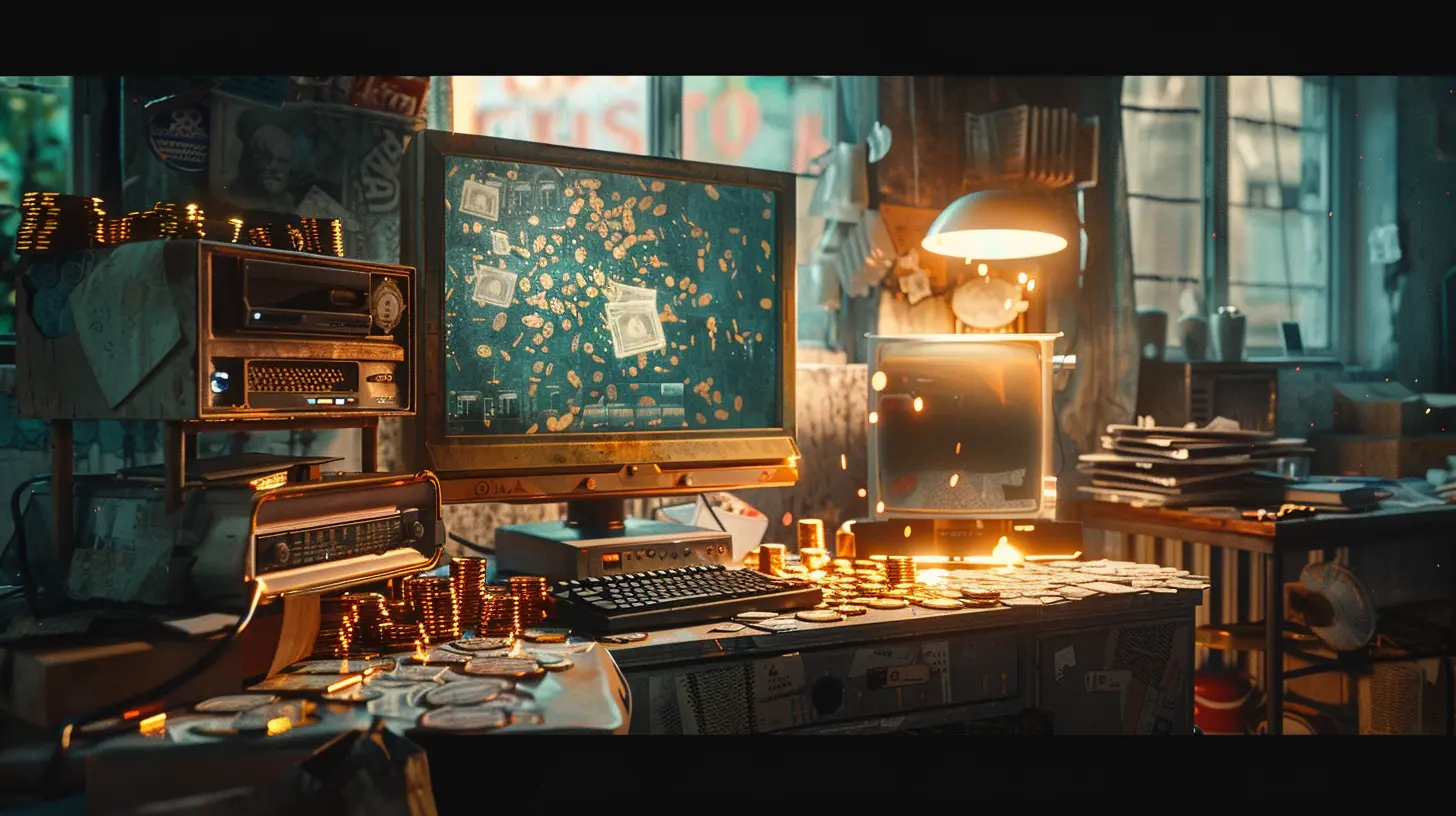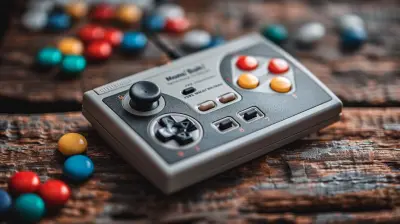Microtransactions: Convenience or Cash Grab?
16 February 2025
Video games have become an essential part of our lives. Whether you're a casual gamer who spends a few hours a week exploring virtual worlds or a hardcore enthusiast grinding away for that next victory, one thing is clear: the gaming industry has skyrocketed over the years. But along with its growth came a hotly debated topic that continues to spark heated discussions amongst players everywhere—microtransactions.
Are they a harmless convenience or just a clever ploy to drain our wallets? Well, let’s dive into it and figure this thing out together.
What Are Microtransactions, Anyway?
Before we get too deep, let’s clear the air here. What are microtransactions? Simply put, they’re small, in-game purchases that players can make to gain access to additional content. Think outfits for your characters, weapons, power-ups, or even loot boxes stuffed with random goodies.You’ve likely seen them labeled as “skins,” “packs,” “coins,” or “gems” in your favorite games. Ring a bell? Yeah, I figured. Whether it’s a free mobile game or a big-budget blockbuster like Call of Duty, microtransactions are pretty much everywhere these days.
But here’s the thing—while microtransactions might sound harmless at first glance, the story isn't quite so straightforward.
The Argument for Convenience: Why Some Gamers Love Microtransactions
Let’s give credit where credit is due. Microtransactions can be a good thing when done right. And no, that’s not a typo—I genuinely mean it. If you’re a busy adult juggling work, family, and, well, life, you might not have hours to sink into grinding for resources in your favorite RPG. This is where microtransactions can step in to save the day.1. Time-Savers for Busy Bees
Picture yourself playing a mobile game while waiting for your coffee. You’re having fun, but you need 500 “gold coins” to unlock the next level. Grinding for them might take days—but for just a few bucks, you can skip the wait and keep the fun rolling. It’s like finding a shortcut on a long road trip.
2. Customization at Your Fingertips
For many of us, part of the joy of gaming is making our characters look cool or unique. Microtransactions let you snag that badass outfit or sleek sword without needing to complete a hundred side quests. Sure, it costs money, but if you’re happy with the purchase, who’s to say it isn’t worth it?
3. Keeping Games Free-to-Play
Microtransactions are often what keep free-to-play games alive. Developers need to make a living, right? By offering optional purchases, they keep the lights on while giving players the choice to spend—or not. It’s like tipping your waiter at a restaurant. A little extra cash helps keep the service going.
The Dark Side: When Microtransactions Feel Like a Cash Grab
Alright, we’ve covered the good—but let’s not sugarcoat this. Microtransactions have also earned a pretty bad rap, and for some good reasons. For every gamer who appreciates the convenience, there’s another who’s shaking their fist at what feels like outright exploitation. So, why the negativity?1. Pay-to-Win Problems
Imagine investing hours into mastering a competitive game, only to be outmatched by someone who paid real money to upgrade their abilities. Frustrating, right? Pay-to-win mechanics are the bane of gamers who value skill and fair play. It’s like showing up to a marathon, only to find someone zooming past you on a motorbike they just bought.
2. Loot Boxes: Gambling in Disguise?
Few things are as controversial as loot boxes. These randomized treasure chests can contain amazing rewards… or absolute garbage. And the catch? You’re paying for a chance at the good stuff, with no guarantees. It’s no wonder people compare this to gambling. I mean, who hasn’t felt the sting of dropping cash on a game only to pull a lousy virtual hat?
3. The Constant Nagging
Some games push microtransactions so aggressively that playing them feels like walking through a shopping mall with salespeople shouting at you. “Hey, want to buy more lives?” “Out of energy? Top up now!” It can be exhausting and downright annoying.
4. Content Gatekeeping
There’s also a feeling that some games lock content behind microtransactions that should’ve been included in the base game. Remember the days when you paid once for a game and got the whole package? Yeah, me too. Those were simpler times.
The Fine Line: Good Intentions Gone Wrong?
Here’s the thing—microtransactions themselves aren’t inherently evil. They started with good intentions: giving players optional extras. But somewhere along the line, things snowballed. Some studios saw how profitable the model could be and cranked things up to eleven. Suddenly, microtransactions weren’t just extras; they started creeping into the very design of games.Take mobile games, for example. Many are built around monetization. Levels get harder, progress slows down, and suddenly, spending money feels less like an option and more like a necessity. It’s no wonder players start to feel manipulated.
Finding the Balance: The Ideal Microtransaction Model
So, where do we go from here? How do we make peace with microtransactions without feeling ripped off? The answer lies in balance. Developers can embrace microtransactions while respecting their players. Here’s what that might look like:1. Keep It Cosmetic
Microtransactions work best when they’re purely cosmetic. Selling cool outfits, mounts, or emotes doesn’t affect gameplay, which prevents the dreaded pay-to-win problem. Everyone gets the same playing field, and spenders are simply rewarded with some extra flair.
2. Transparency Is Key
If loot boxes are going to stick around, at least be transparent about the odds. Players shouldn’t feel like they’re playing the lottery blindly. Showing the chances of getting rare items builds trust—and hey, it’s the law in some countries now.
3. Fair Pricing
No one wants to spend $20 on a single skin. Pricing needs to be reasonable. A few bucks here and there feels fine—but push it too far, and you’ll alienate your audience. Gamers are savvy; they know when they’re being played.
4. Respecting the Grind
Progression systems should always let players earn rewards through gameplay. Sure, offer the option to speed things up with a purchase, but don’t design games in a way that forces people to pay up if they want to enjoy themselves.
So, Convenience or Cash Grab?
At the end of the day, microtransactions are both—a blessing and a curse, a tool that can be used wisely or abused. It all depends on how developers implement them and how players perceive them. For some, they’re a handy convenience that makes gaming more accessible. For others, they’re a frustrating cash grab that taints the experience.Here’s my take: Microtransactions aren’t going away anytime soon. They’ve become an integral part of the industry, for better or worse. But as gamers, we have the power to hold companies accountable. By supporting fair and balanced monetization practices—and calling out exploitative ones—we can help shape the future of gaming into something we’re all proud to be a part of.
So, the next time you’re faced with a microtransaction, take a minute to think. Is it worth it? Does it add to your experience, or does it feel like the game’s shaking you down for spare change? The choice, as always, is in your hands.
all images in this post were generated using AI tools
Category:
MicrotransactionsAuthor:

Greyson McVeigh
Discussion
rate this article
5 comments
Zachary Henson
Microtransactions: the magic beans of gaming today!
February 25, 2025 at 4:45 PM

Greyson McVeigh
Thank you for your comment! Microtransactions certainly spark a debate between enhancing convenience and generating profit. It's a complex landscape that varies by game and player experience.
Kyle McKeehan
Microtransactions can enhance user experience by offering convenience, but they also risk becoming cash grabs, potentially alienating players. Striking a balance is essential for fair gaming.
February 23, 2025 at 3:42 PM

Greyson McVeigh
Thank you for your insightful comment! Balancing convenience with fairness is indeed crucial to ensure a positive gaming experience while avoiding alienation of players.
Kathleen McCloud
Microtransactions: the ultimate test of patience or wallet strength. If convenience means emptying my pockets for basic features, count me out! Just give us the full game, please!
February 23, 2025 at 3:20 AM

Greyson McVeigh
Thanks for your comment! Many share your frustration with microtransactions, feeling they undermine the gaming experience by prioritizing profit over value. Balancing convenience and fairness is crucial for both players and developers.
Lily Middleton
Microtransactions: the fine line between convenience and a cash-grab. It’s like paying for fast food fries—why not just enjoy the game without extra toppings? But hey, if I can buy a unicorn, where do I sign up?
February 22, 2025 at 5:12 AM

Greyson McVeigh
You've captured the essence perfectly! Microtransactions can enhance gameplay for some, but they often blur the line between enrichment and exploitation. It's all about finding that balance. 🦄
Fay McIntyre
Microtransactions: because who doesn’t love paying extra for the privilege of playing a game we already bought? Genius!
February 19, 2025 at 5:02 AM

Greyson McVeigh
Thank you for your comment! Many players share your frustration with microtransactions, and it's a topic that sparks a lot of debate regarding fairness and value in gaming.
MORE POSTS

Horror Games Set in Unlikely Locations: Fear Beyond the Usual Spaces

Designing Reward Systems That Keep Players Coming Back

Budding Entrepreneurs: Discovering Business Growth Through Simulation Games

Accessible Game Development: Designing Games for Everyone

The Most Controversial Microtransactions in Gaming History